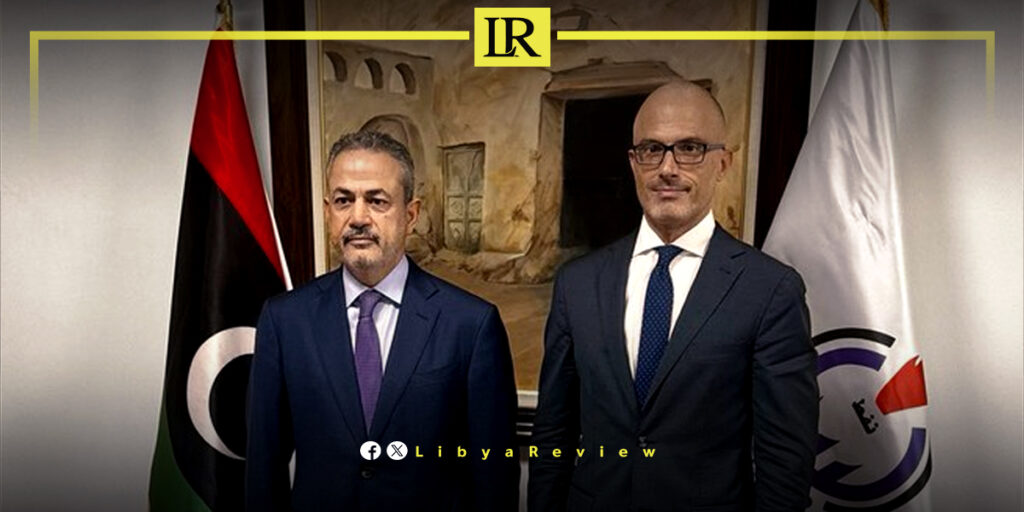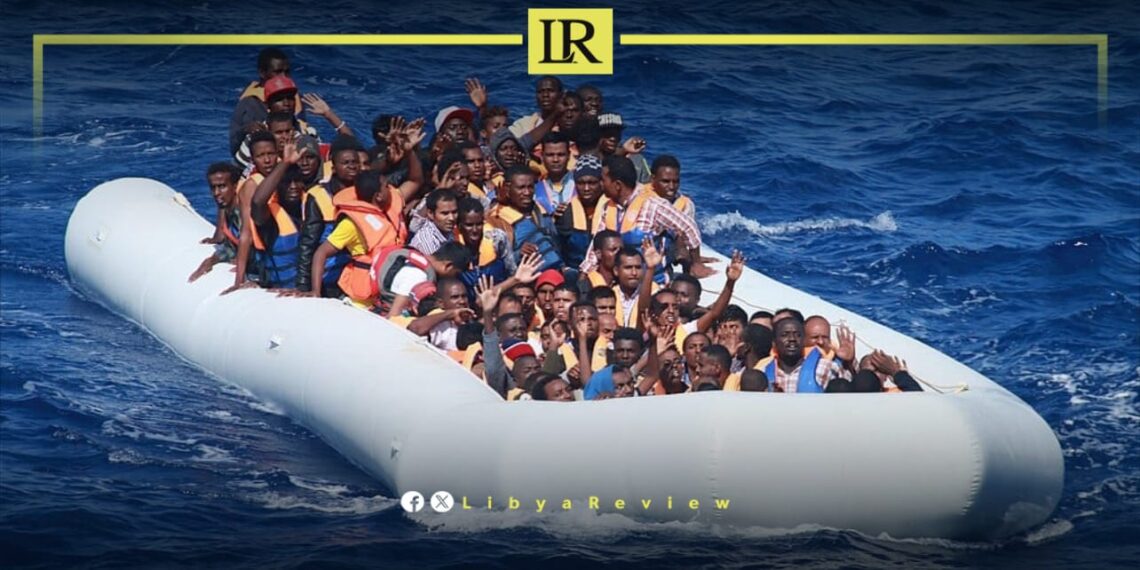NATIONAL SECURITY ISSUES
- Greek authorities announced on Friday that 75 migrants attempting to reach Europe from North Africa were rescued from a stranded boat south of Crete. The migrants, believed to have departed from eastern Libya, sent a distress call before being picked up by a merchant vessel in the Mediterranean Sea. Their nationalities remain unconfirmed. The migrants are being escorted by a Greek coast guard patrol to a southern Crete port. This year, the journey from Libya to Crete has emerged as a new route for migrants from Africa, the Middle East, and Asia seeking better opportunities in Europe.
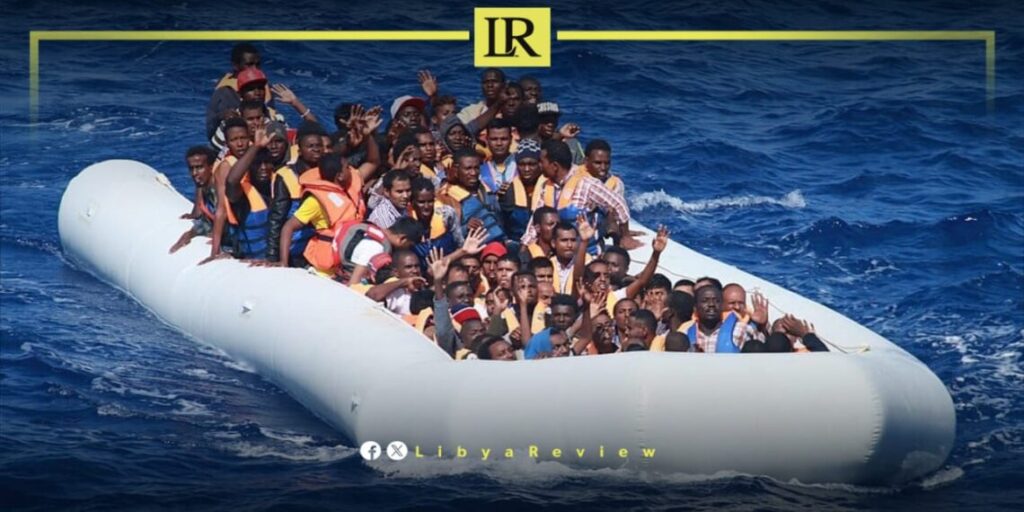
- The International Organization for Migration (IOM) announced that it had facilitated the repatriation of 150 stranded Bangladeshi migrants from Libya. In a statement, the IOM said that repatriation was organized by the Ministry of Foreign Affairs, the Bangladesh Embassy in Tripoli, as part of ongoing efforts to bring home migrants caught in dangerous and illegal migration routes. The migrants arrived in Dhaka aboard a chartered Buraq Air flight (UZ 0222) that landed at Hazrat Shahjalal International Airport. Upon their arrival, they were received by officials from the foreign ministry and the IOM, who provided assistance.
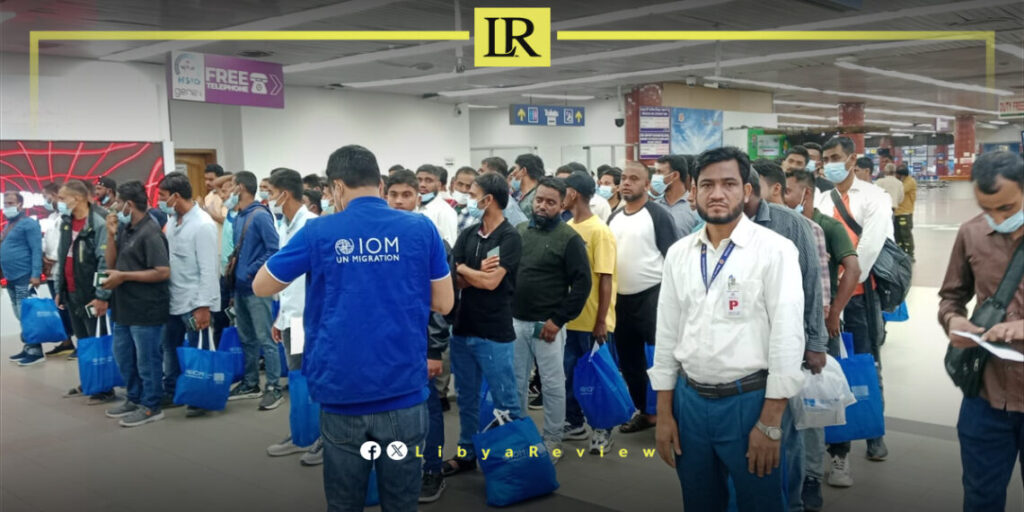
- Greek Migration and Asylum Minister Nikos Panagiotopoulos reported a significant rise in irregular migrant flows from Libya towards Crete in the past two to three months. Speaking on Mega Channel, he revealed that around 3,000 third-country nationals have attempted to reach Greek territory in 2024, a noticeable increase compared to 2023. Migrant boats are reportedly departing from eastern Libya, with traffickers often requesting help from merchant vessels or the Greek coast guard near Crete. Many migrants, predominantly from Syria, Egypt, and Pakistan, aim to move further into northern Europe, particularly Germany. Recently, a vessel carrying 55 migrants was intercepted near Gavdos island, south of Crete, as part of ongoing migrant arrivals. Over 300 migrants have reached Crete and Gavdos within the past three days. Currently, Greece is housing around 22,000 undocumented migrants in temporary shelters across the country.
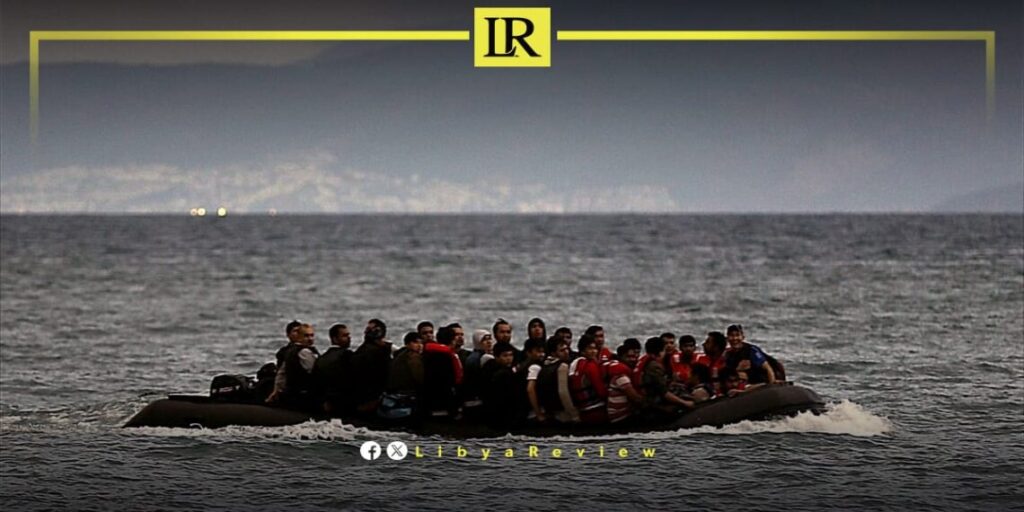
- The People’s Voice Party of Libya has issued a statement calling for the immediate closure of all “Bayti” centres established by UNICEF in Libya, labelling their activities as “suspicious” and accusing them of promoting the settlement of migrants. The party also urged the government to launch an investigation into the centres’ operations. The statement claimed that the “Bayti” centres, which are supported by the European Union and located in cities such as Ajdabiya, Misrata, Derna, and Tripoli, pose a threat to Libya’s demographic composition and national security.
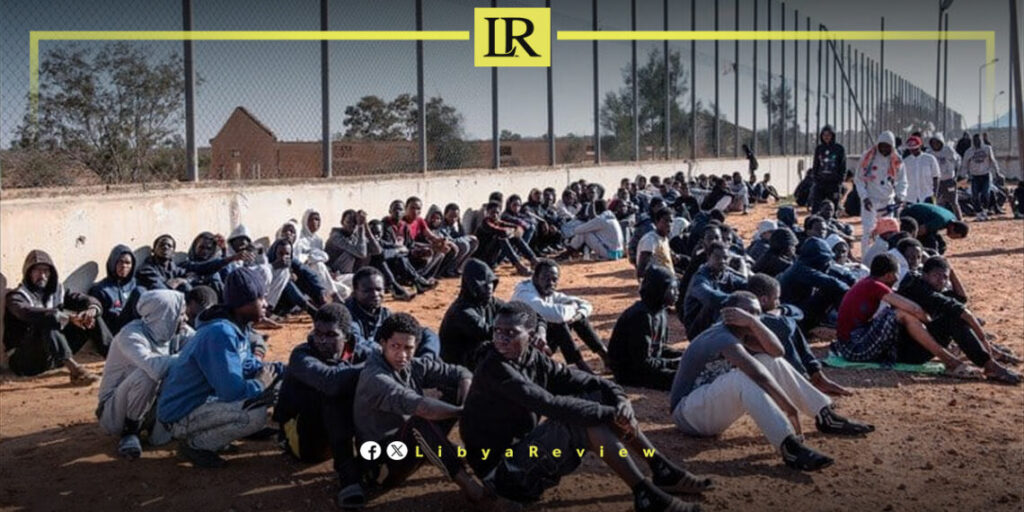
NATIONAL POLITICS AND SOCIAL ISSUES
- A senior Chinese diplomat, Dai Bing, China’s deputy permanent representative to the United Nations, reiterated China’s appeal for the withdrawal of foreign armed forces and mercenaries from Libya during a Security Council briefing. According to CGTN news, Dai emphasised that the political transition in Libya is crucial for the country’s long-term peace and stability. He urged the international community to support African-led solutions and called for dialogue to resolve Libya’s political impasse. Dai also stressed the importance of respecting Libya’s sovereignty and territorial integrity and urged all Libyan parties to prioritize national interests, comply with the ceasefire agreement, and focus on humanitarian challenges.
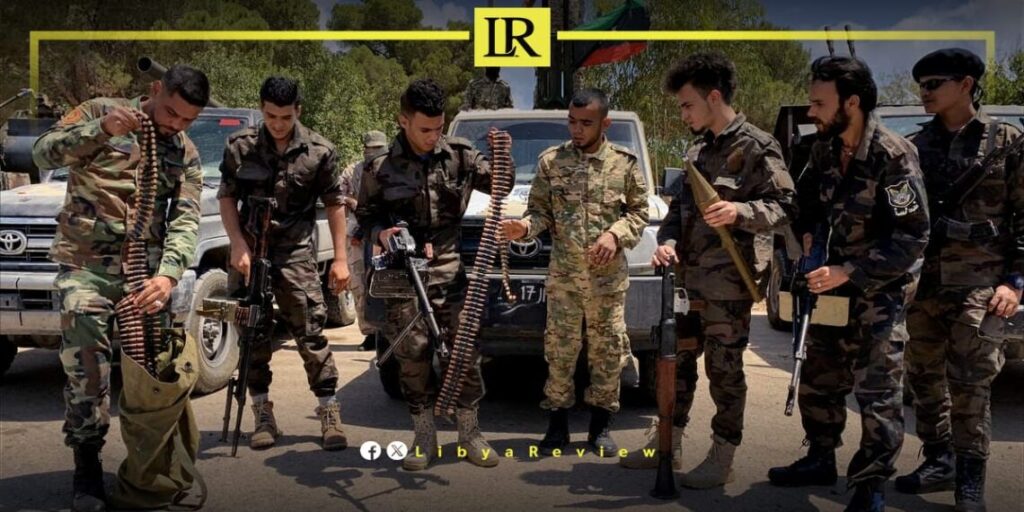
- Libyan Parliament Speaker Ageela Saleh called for the prompt launch of the Libyan-American Forum for Development and Reconstruction to build strategic partnerships that would benefit both nations. He highlighted the recent visit of Libya’s Reconstruction and Development Fund Director, Belgasem Haftar, to the US, inviting American companies to contribute to large-scale development projects. During his visit to the U.S. State Department in Washington, Saleh met with Acting Under Secretary of State for Political Affairs John Bass, Assistant Secretary for Near Eastern Affairs Barbara Leaf, and U.S. Special Envoy to Libya Richard Norland.
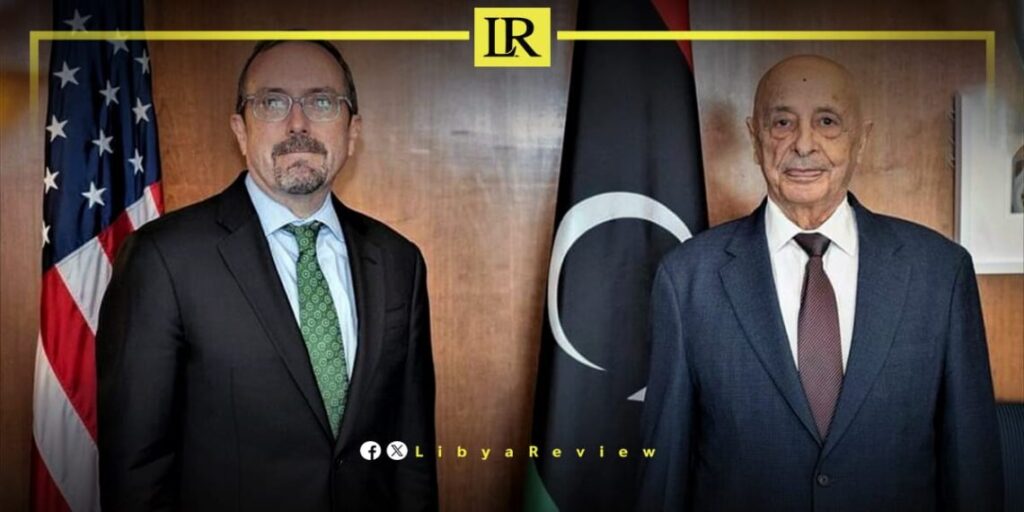
- Libya’s Minister of Economy and Trade, Mohamed Al-Hwaij, expressed a strong commitment to driving stability in the country through extensive economic reforms. During a meeting with Sophie Kim Hazza, Director of the United Nations Development Programme (UNDP) in Libya, Al-Hwaij detailed plans for economic diversification and development, which he believes are essential for the country’s future. The discussion centered on strengthening cooperation between Libya and the UNDP, with a particular focus on implementing Libya’s economic development strategy. This partnership, according to Al-Hwaij, is critical to improving the nation’s financial situation and achieving long-term growth, aligning with the United Nations’ 2030 Sustainable Development Goals (SDGs).
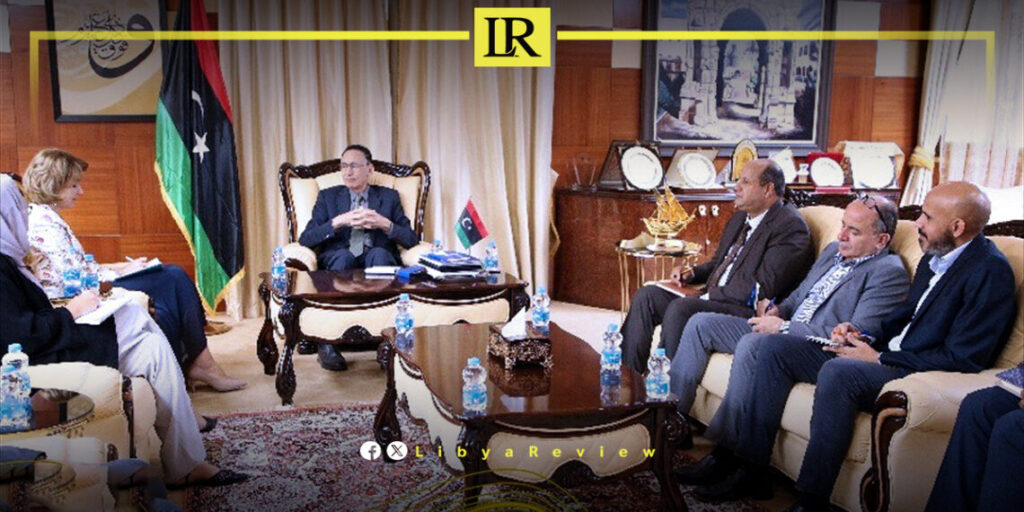
INTERNATIONAL RELATIONS
- The Head of the Libyan Presidential Council, Mohamed Al-Mnifi, and Council Member, Abdullah al-Lafi, met today with a delegation from the African Union, led by its current chairperson and President of Mauritania, Mohamed Ould Cheikh Ghazouani.During the meeting, they discussed the progress made since the launch of the national reconciliation process, the challenges it faces, and ways to overcome them.The meeting was attended by African Union Commission Chairperson Moussa Faki, and Jean-Claude Gakosso, Congo Brazzaville’s Minister of Foreign Affairs and Special Representative to the President. According to the Libyan Presidential Council, the meeting reinforced the African Union’s commitment to the path of national reconciliation, as well as Libya’s unity, sovereignty, and stability, in the face of external interference.
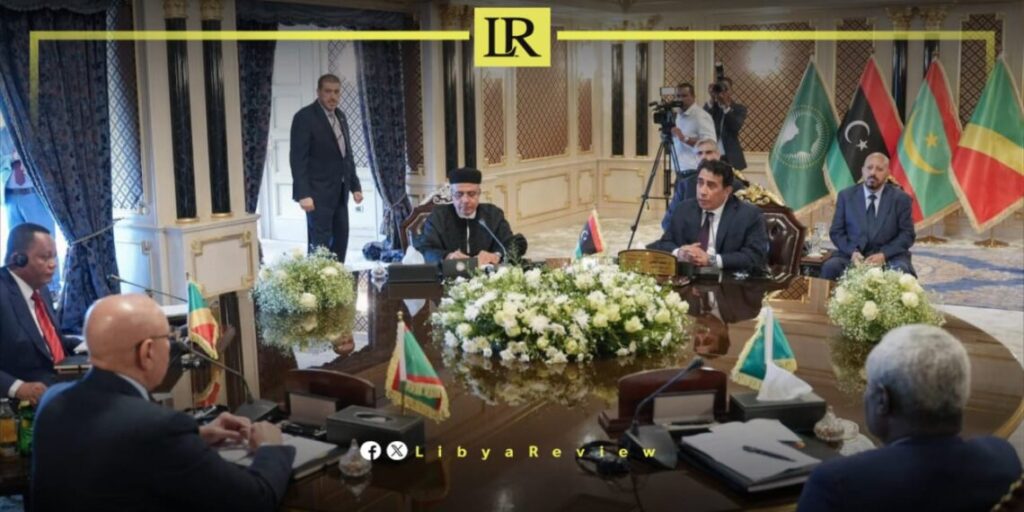
- The Chairman of Libya’s National Oil Corporation (NOC), Farhat Bengdara, met with Nikolaus Orlando, the European Union’s Ambassador to Libya, to discuss expanding cooperation in oil, gas, renewable energy, and environmental protection. The meeting, which took place in Tripoli, underscored the shared goal of sustainable development and increasing private-sector involvement in these critical industries. Orlando emphasized the EU’s commitment to helping Libya increase its oil and gas production sustainably, while also exploring its vast potential in renewable energy. The EU considers both priorities vital for the region’s stability and Libya’s long-term economic recovery. According to a statement from the EU delegation, boosting Libya’s energy production while respecting environmental standards is a key mutual interest.
